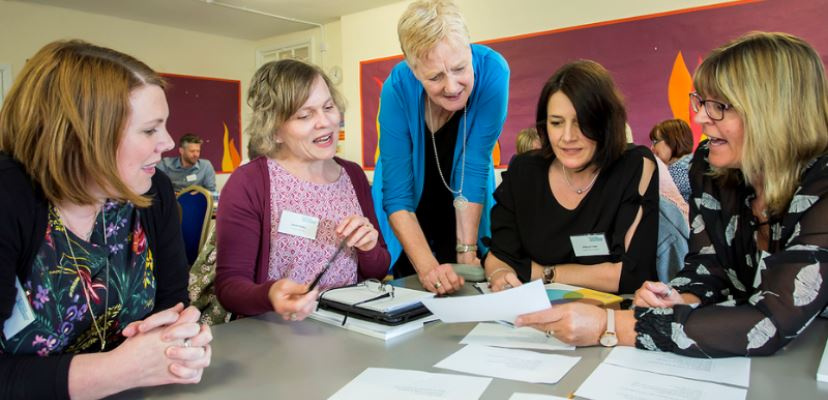
Peer review and facing up to challenge
We believe that peer review has a central role to play in both healing and rebuilding our education system. Peer review exists to help schools solve their most pressing issues and improve together, with a collective efficacy, will and purpose. Empowered teachers and effective leaders, collaborating honestly, with rigour, and without fear or judgement, leads to inclusive learning communities where all children and professionals can thrive.
As Ronald Heifetz has argued in his book ‘Leadership on the Line’, effective leadership development takes place in the context of problems and challenges. Leadership learning is even more essential when we are leading in unprecedented times, when relying on what we have done before is no longer sufficient.
Welcome to leading and learning during a pandemic.
Adapting to new ways of working
Education Development Trust’s Schools Partnership Programme (SPP) is the largest collaborative school improvement programme in the country, with peer review at the heart of an active and growing, national, self-sustaining, and school-led movement. SPP provides coaching and support to senior and middle leaders from across groups of schools committed to working together to improve, enabling them to:
- create and sustain a culture of collaboration and mutual accountability within and between schools;
- use evidence-based enquiry frameworks to contextualise and articulate their school improvement journey, whatever the focus; and
- employ peer review methodology with rigour and transparency to galvanise and measure change and improvement.
At the start of the pandemic, we quickly realised that we needed to adapt and be as immediately useful as possible to colleagues in schools. This article invites you to explore what we learned about the power of peer review and school partnerships, during a time of major disruption. We will share how listening to school leaders has underpinned our response to the pandemic, and how Covid regulations informed the development and testing of new ways working. We end by looking at what next for peer review, exploring why we think that collaborative and networked education systems are much more able to withstand shock, and why peer review is central to such a system.
What did we hear from school leaders?
As soon as lock down in March 2020 was announced we reached out to a sample of the 300 school leaders we currently work with, to better understand their immediate challenges and how SPP and peer review might help tackle them, even in a socially distant and constantly shifting environment.